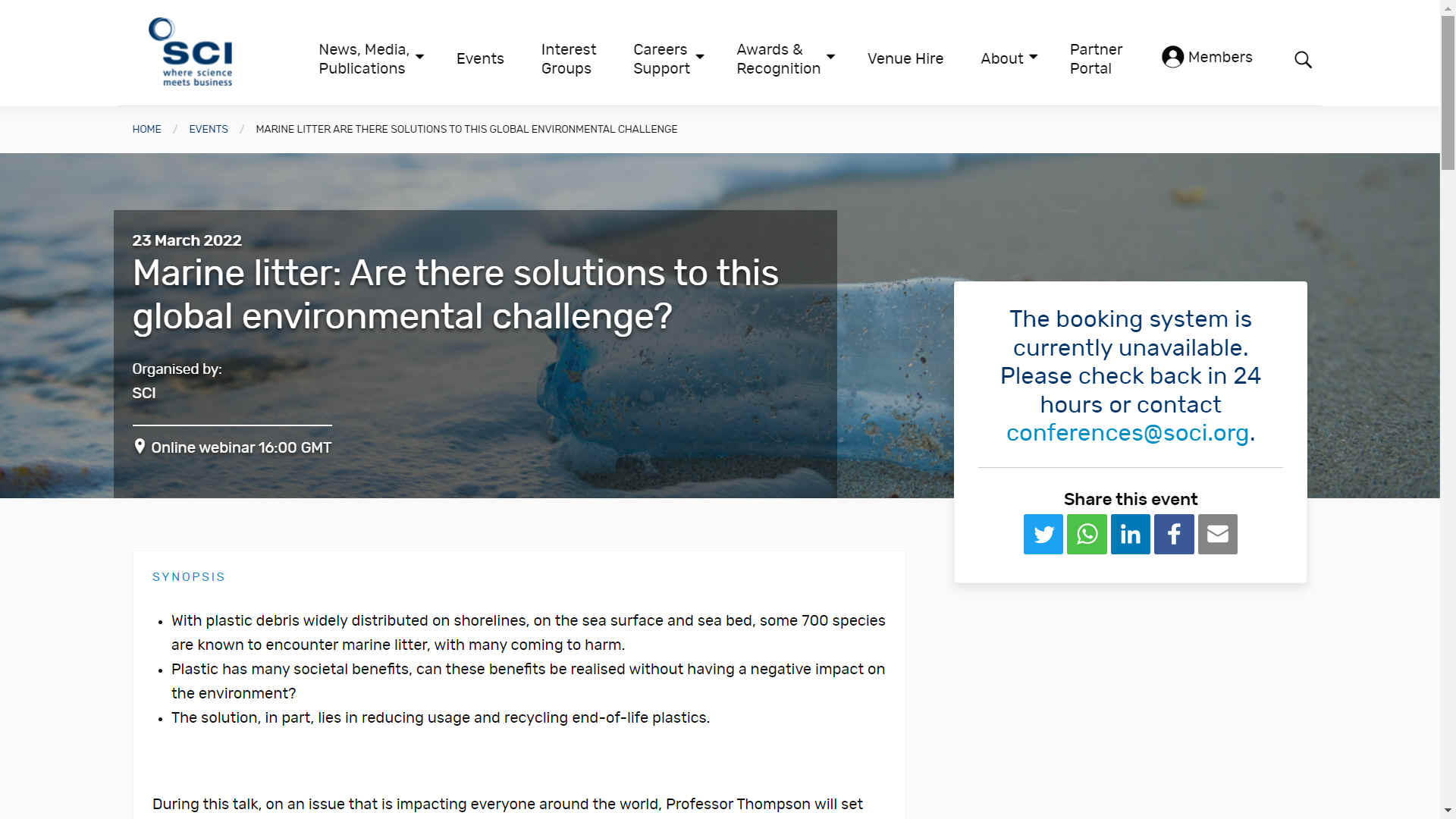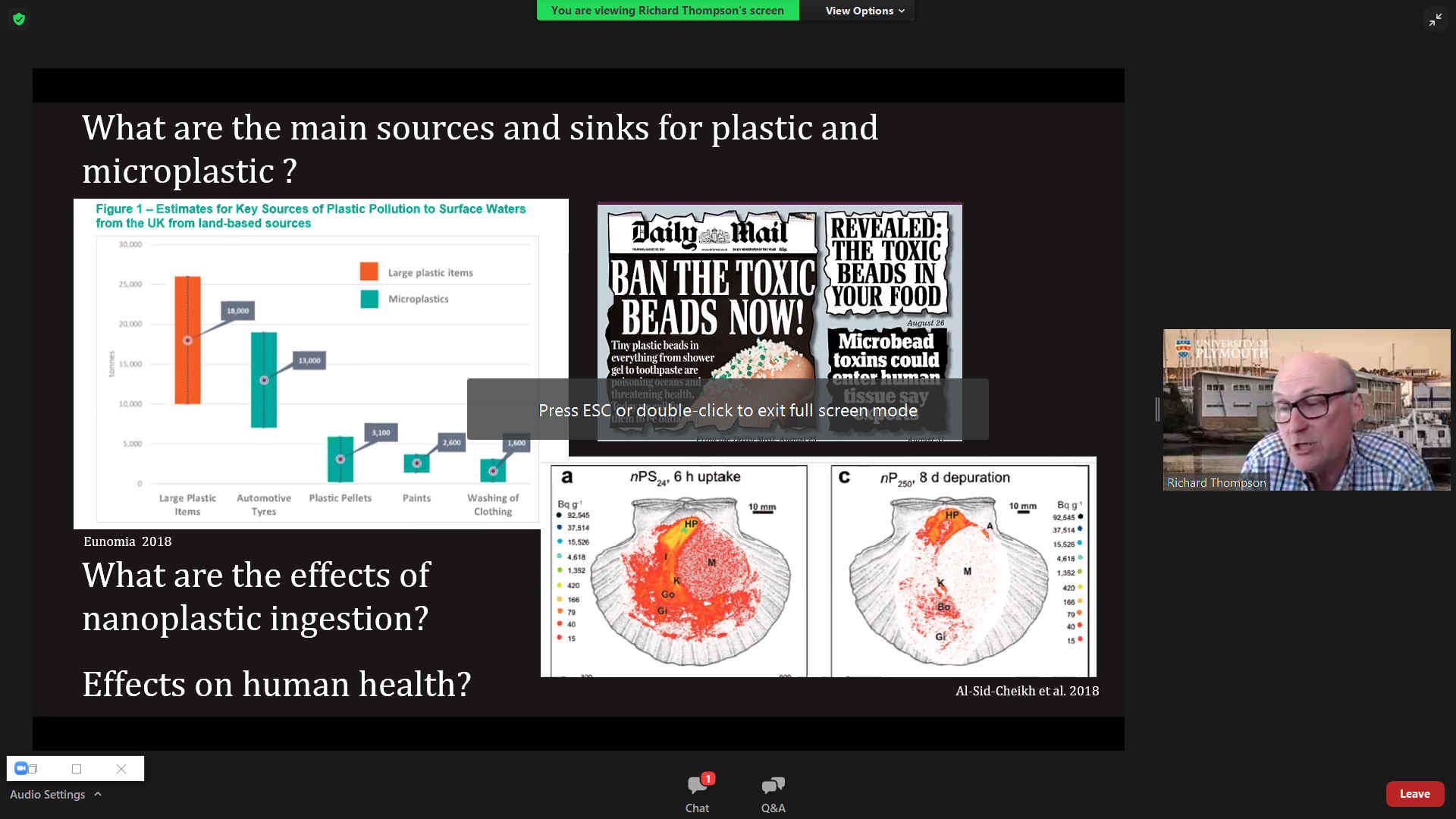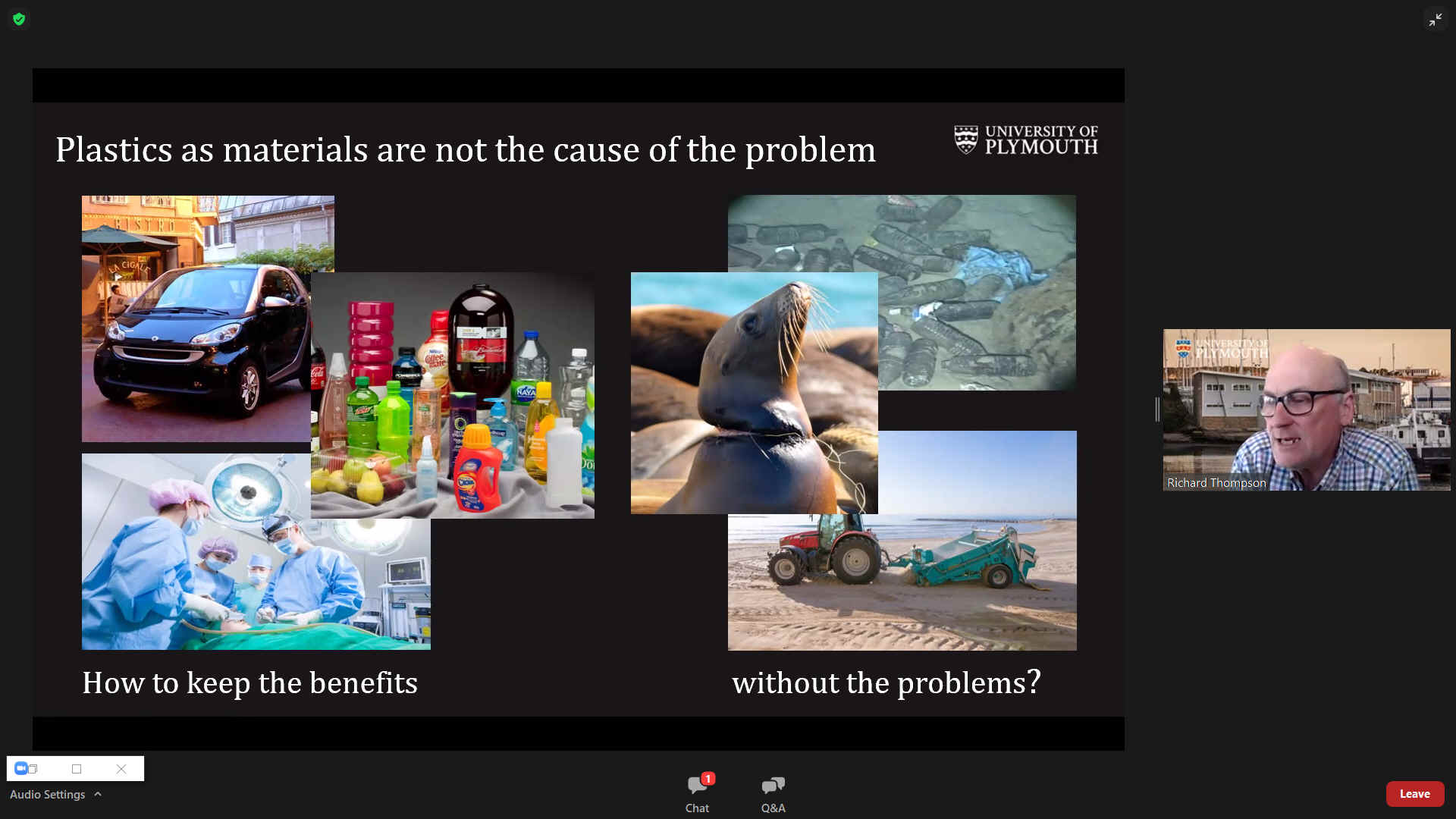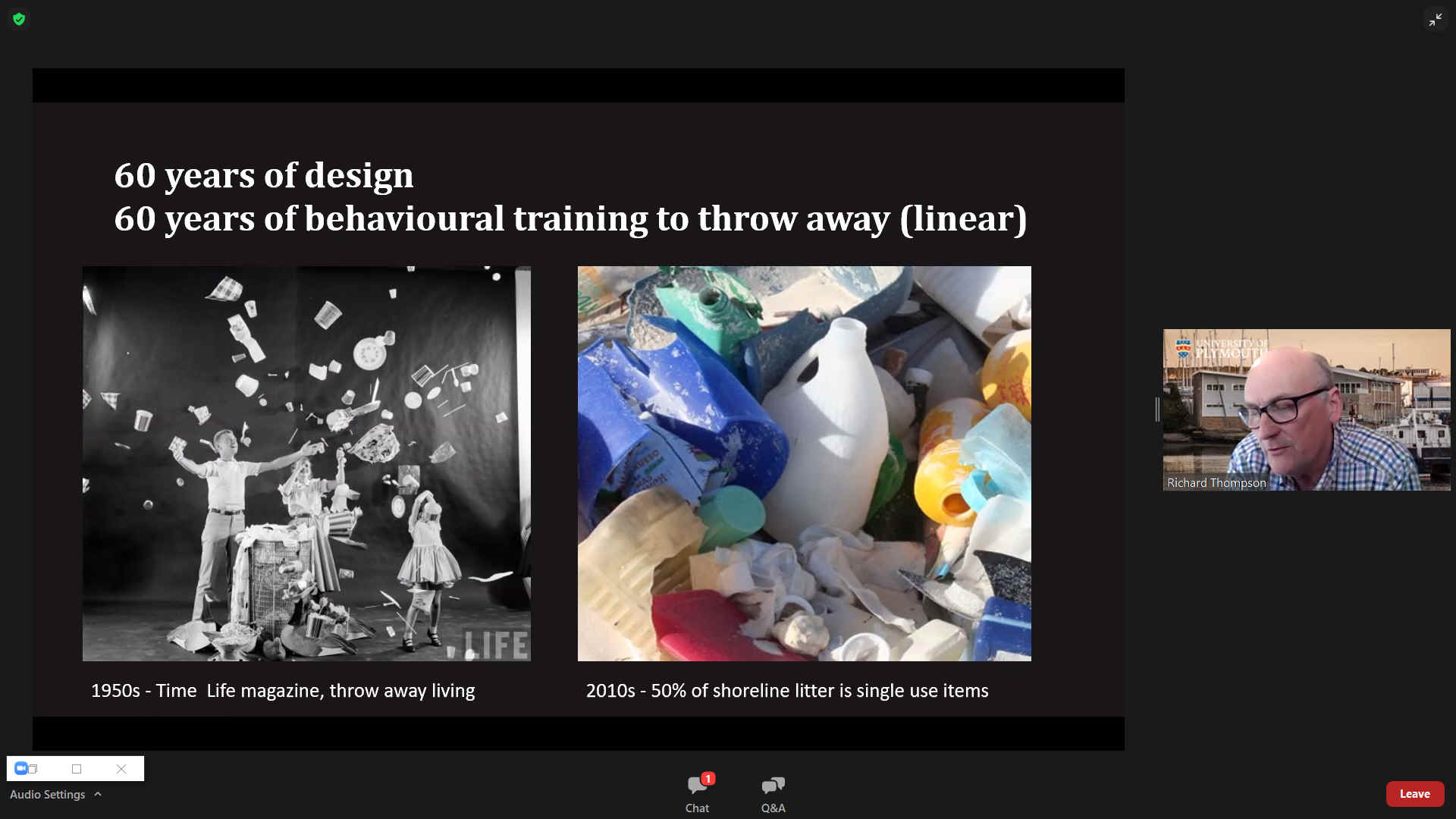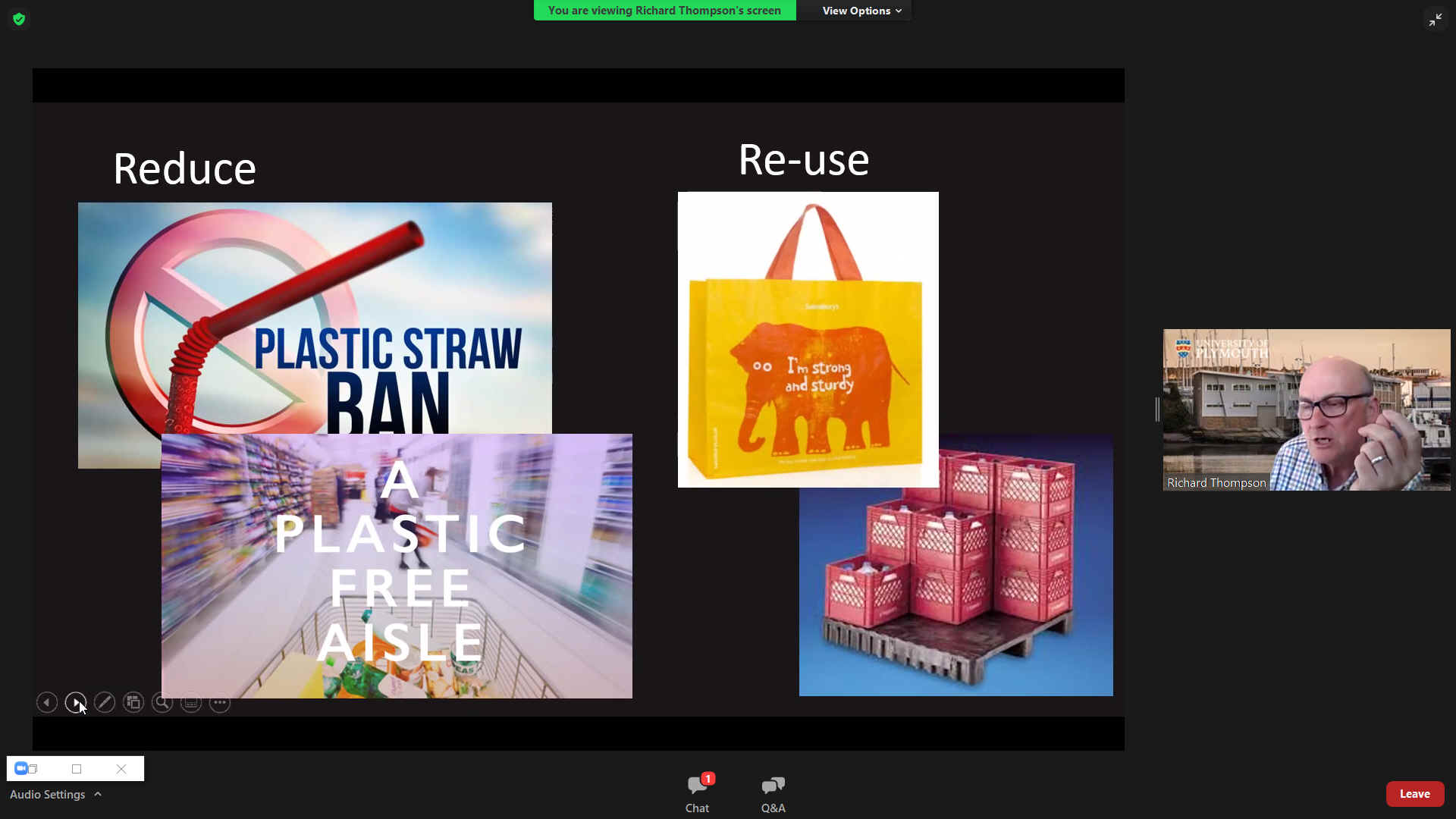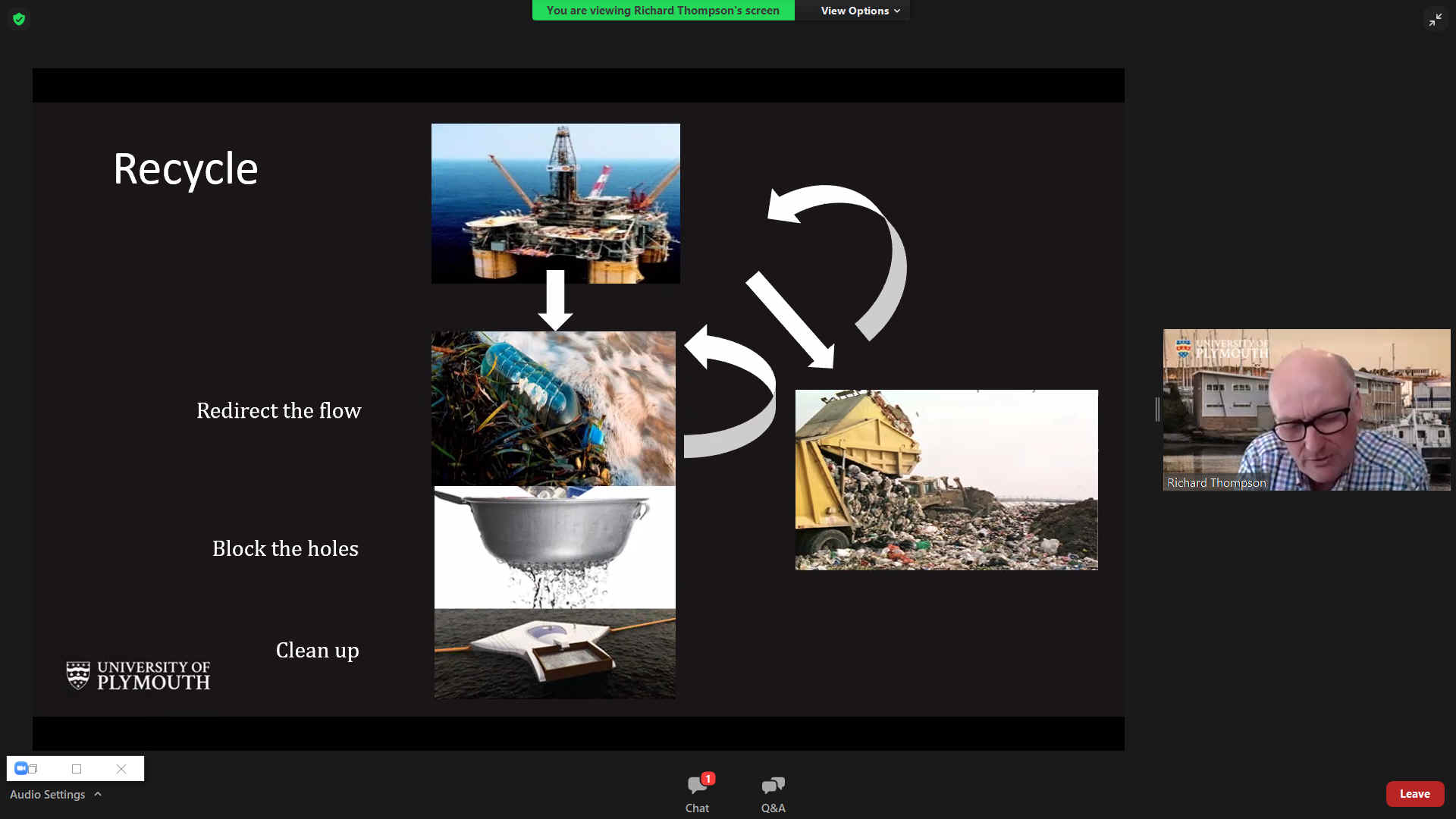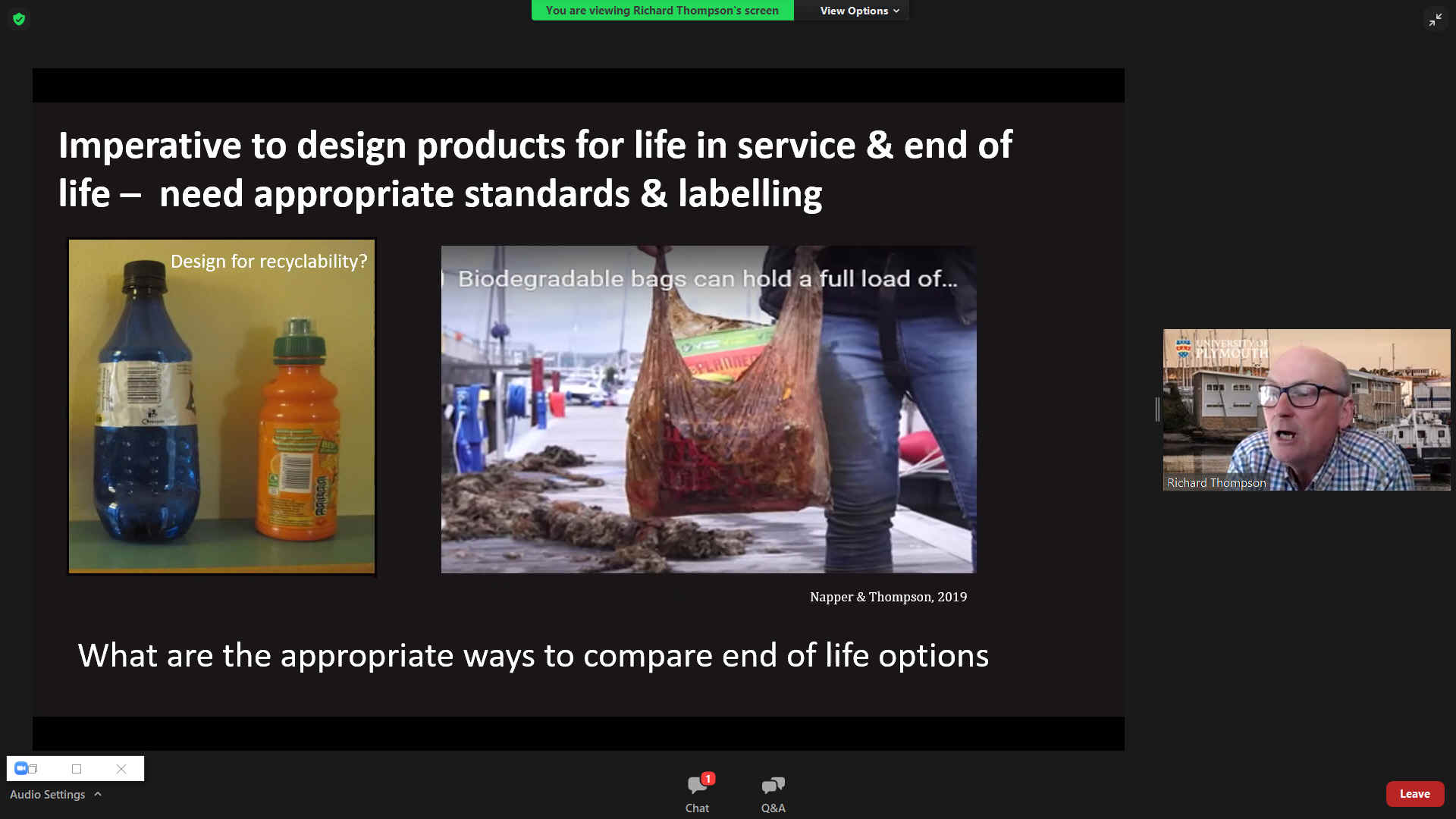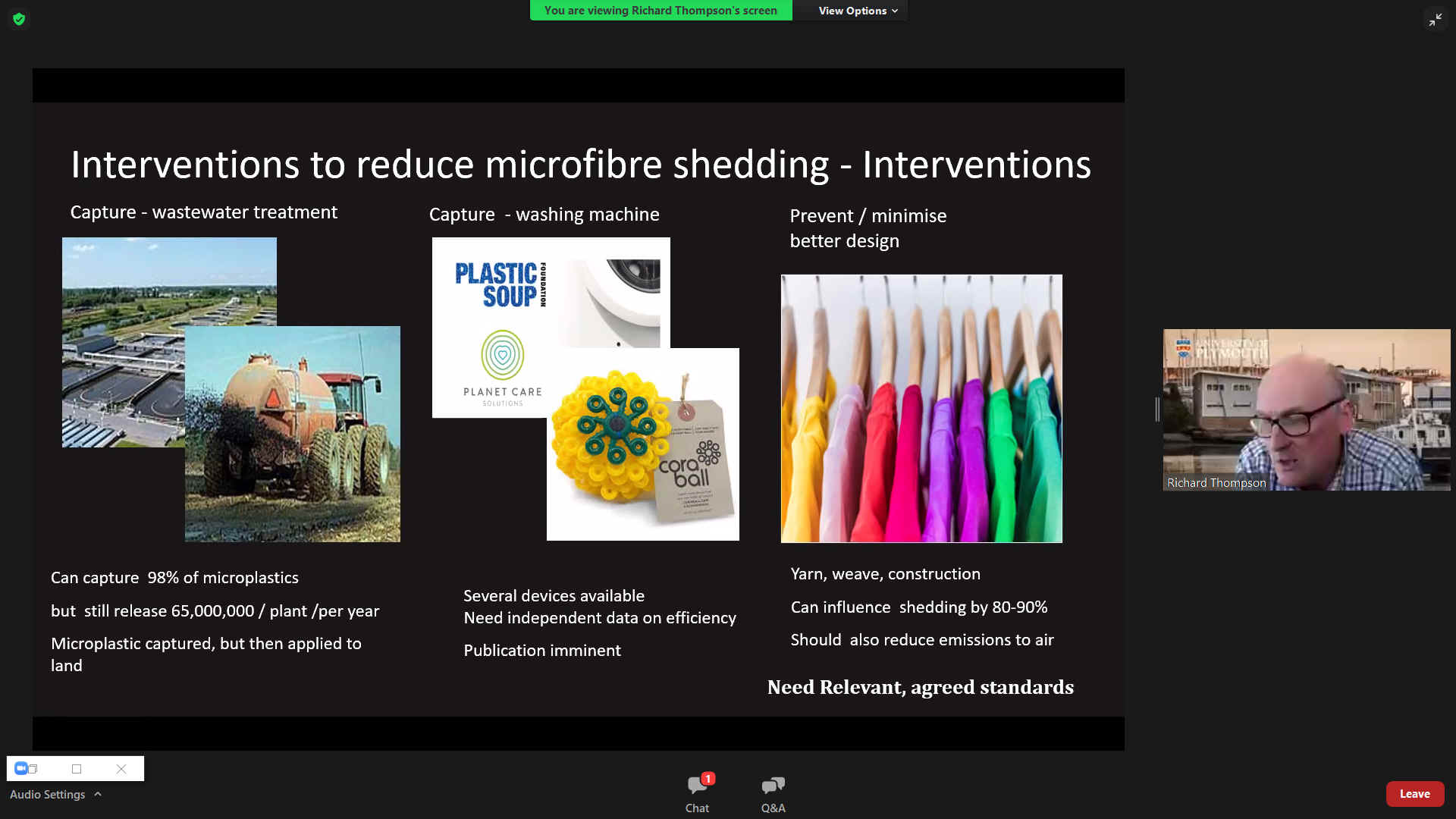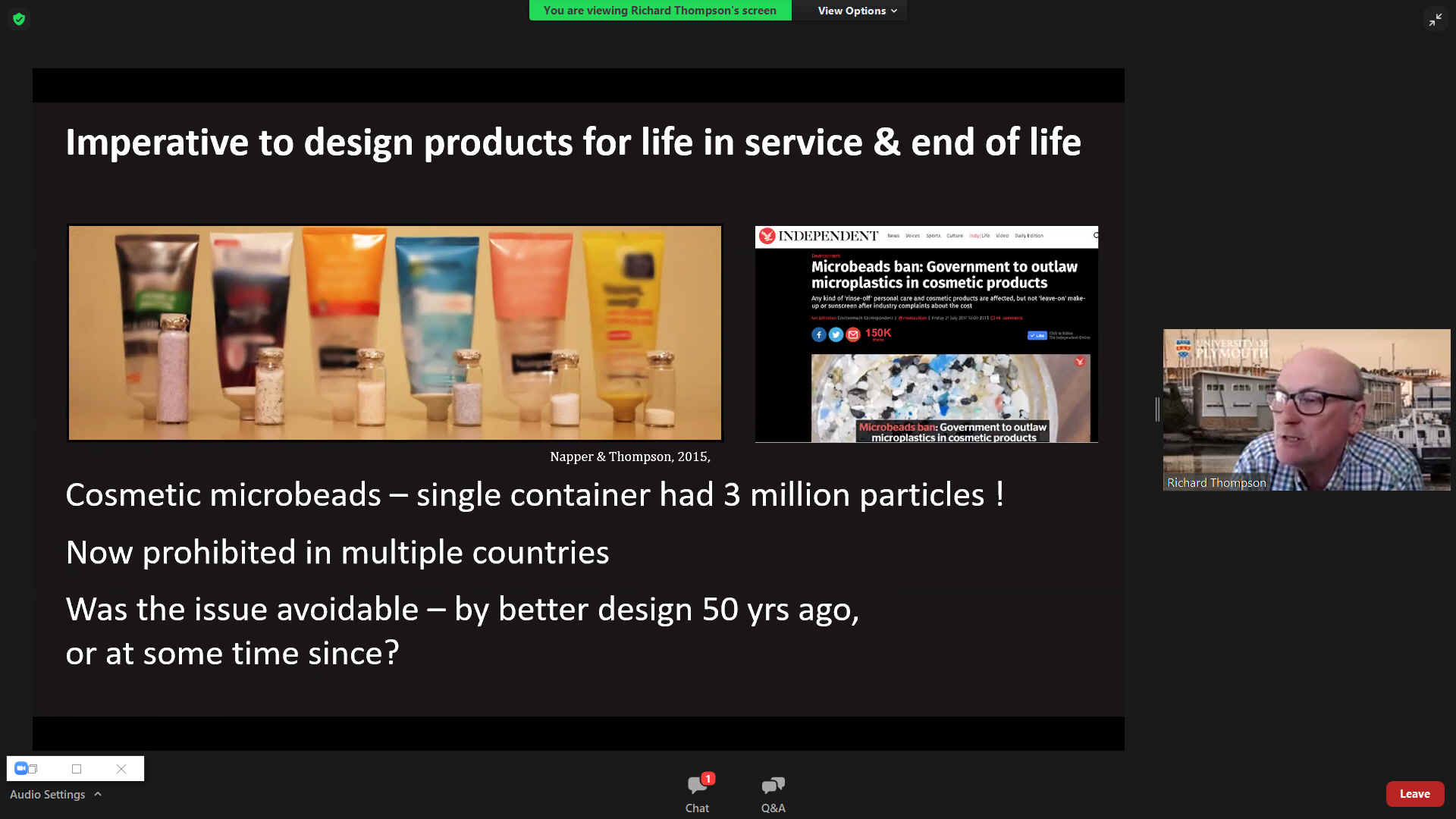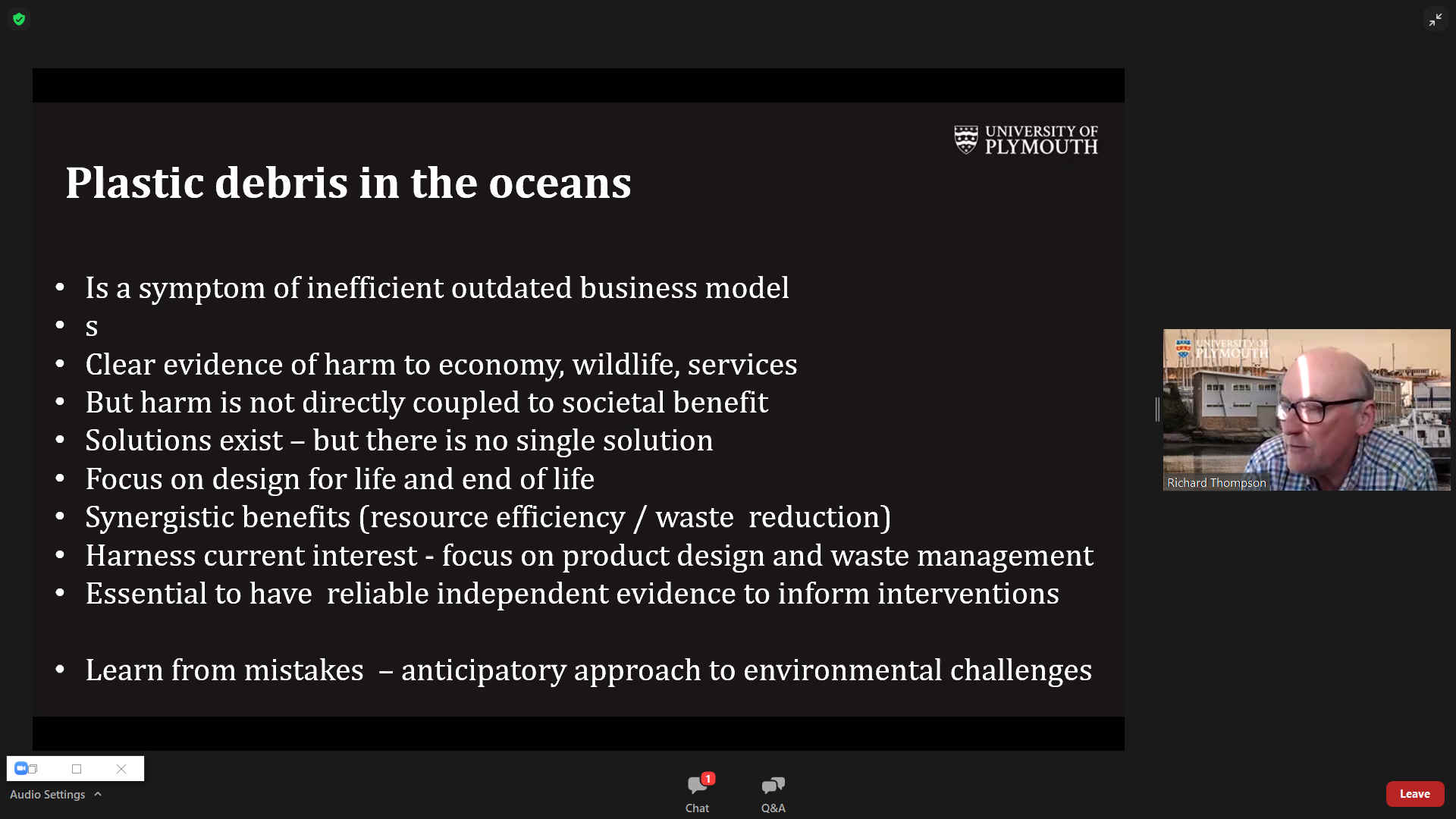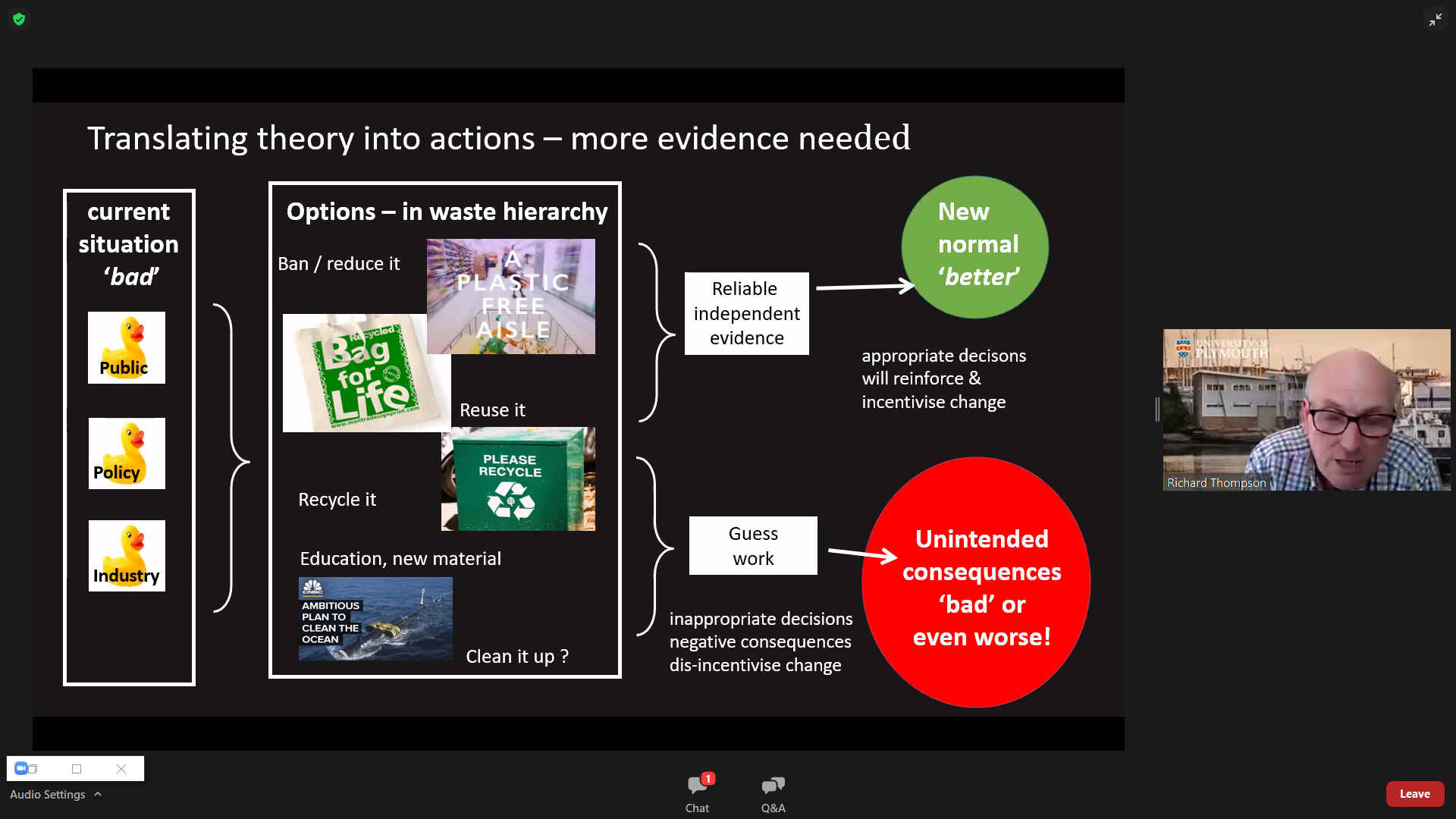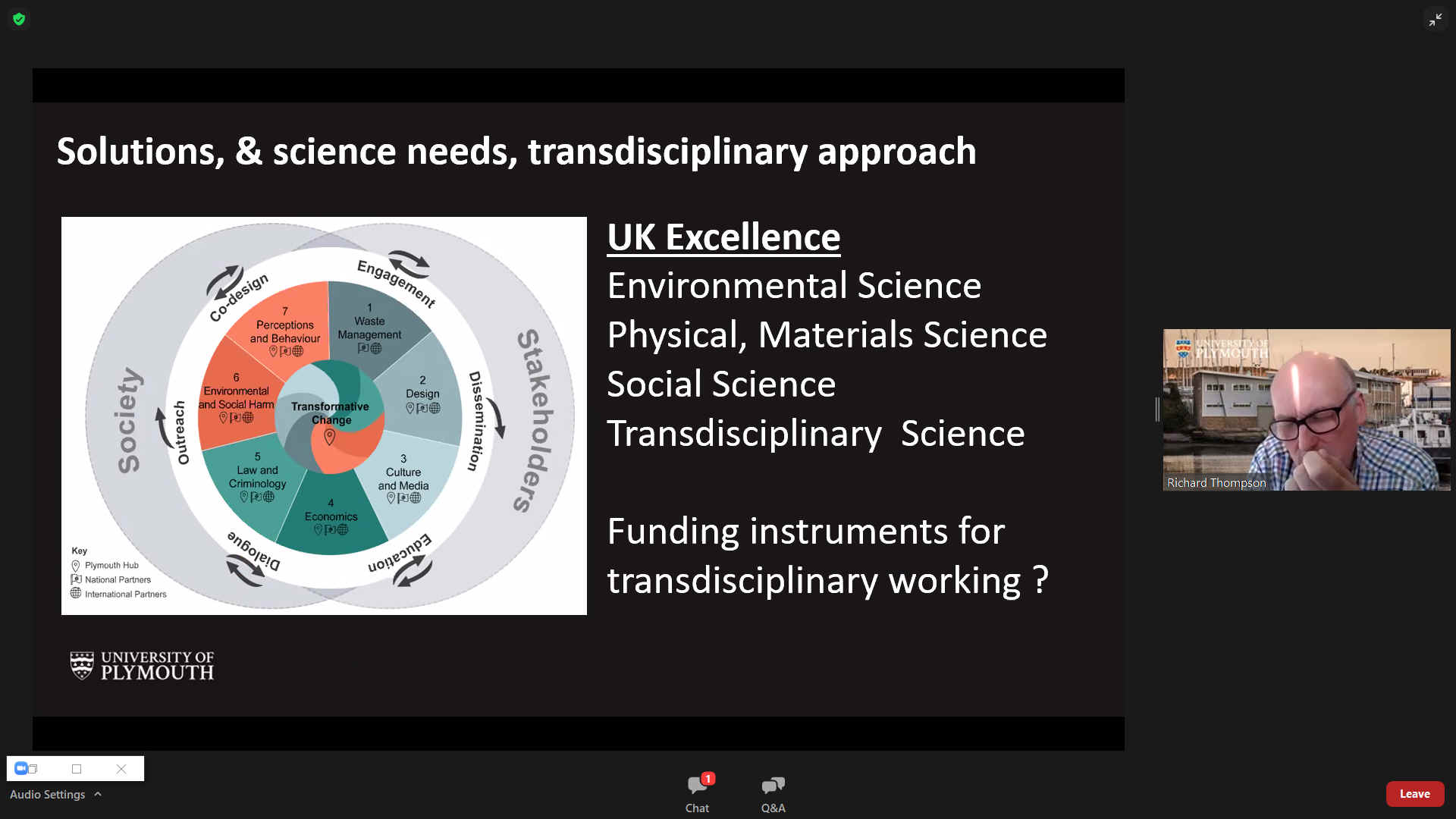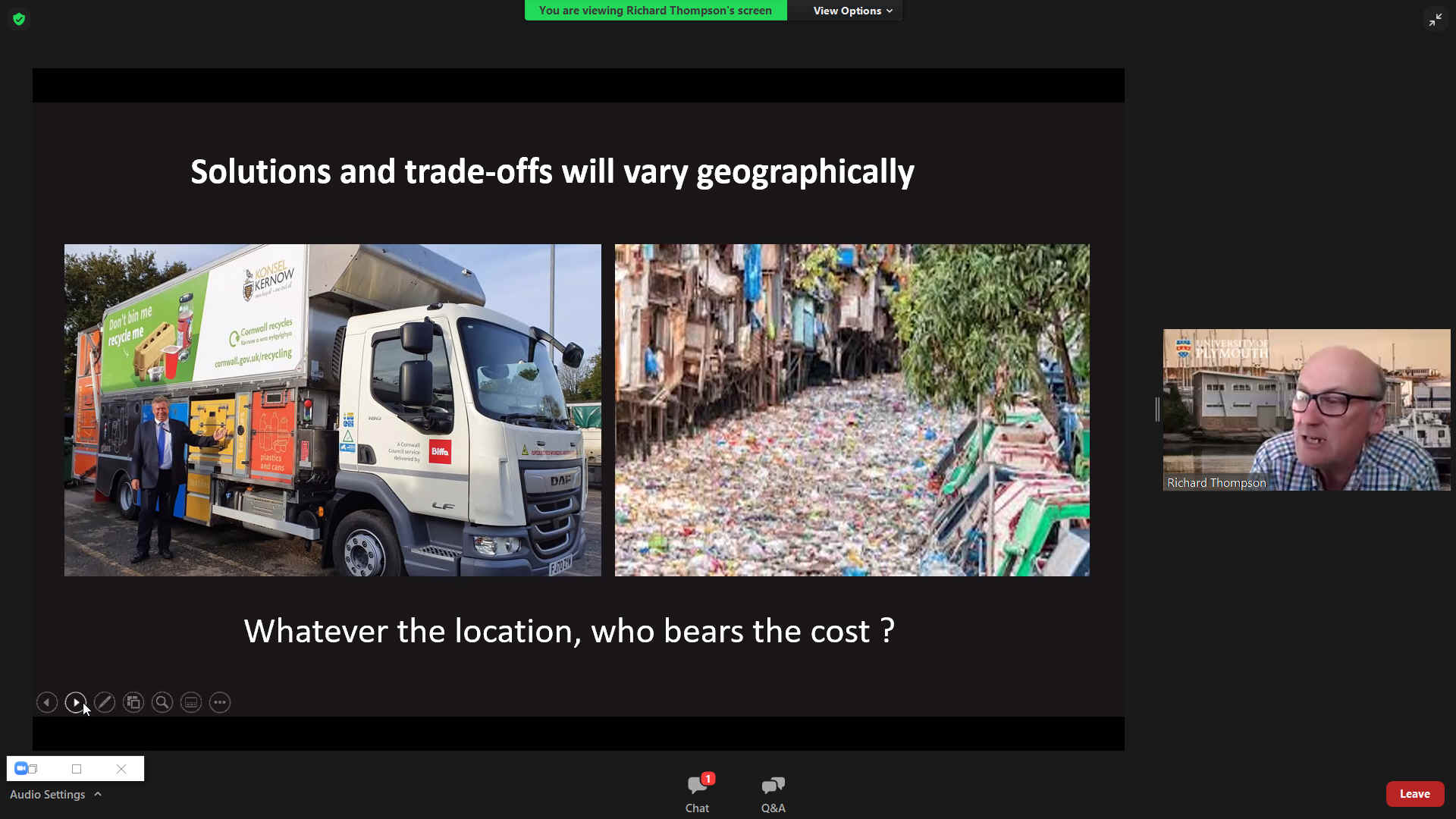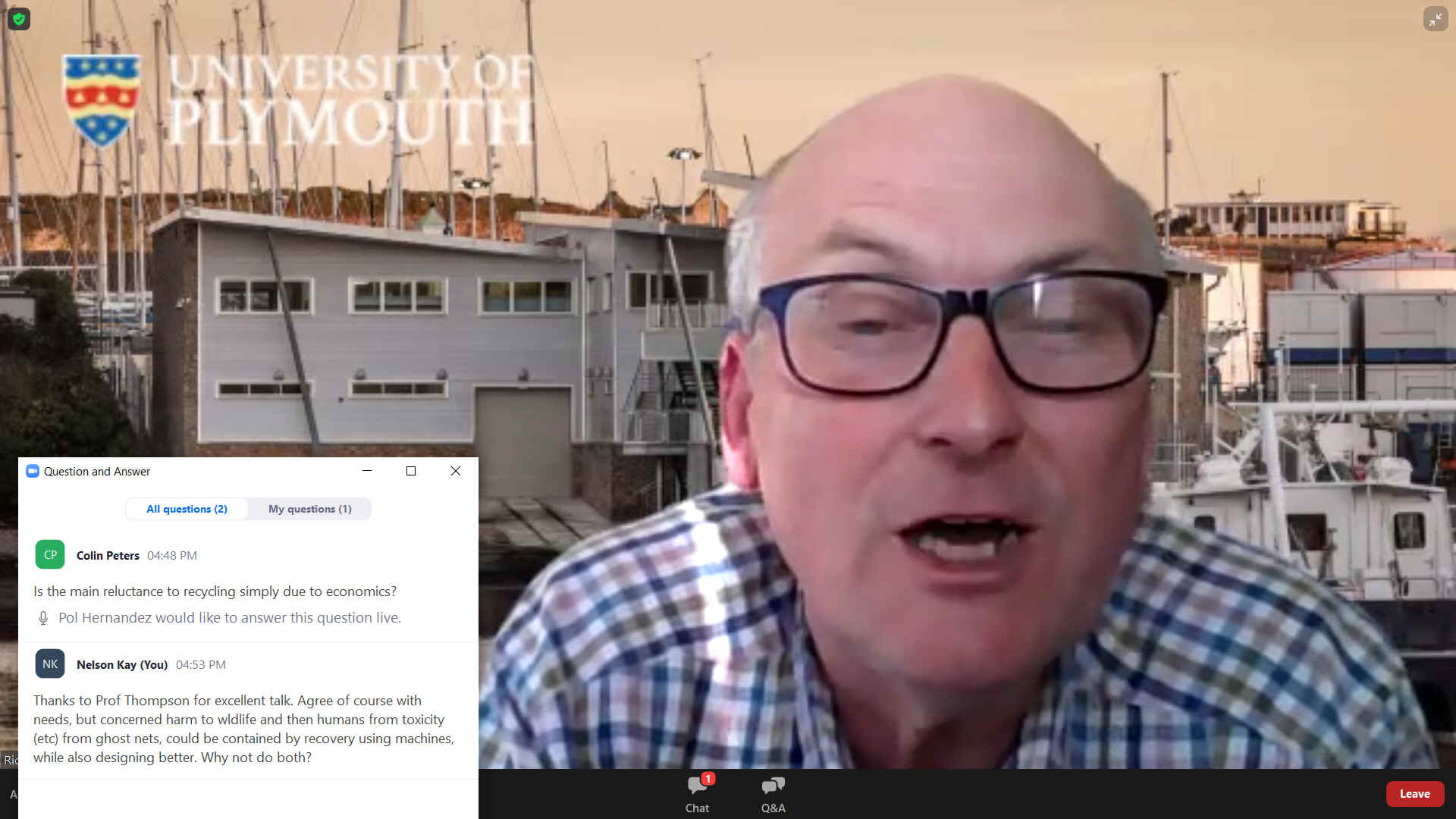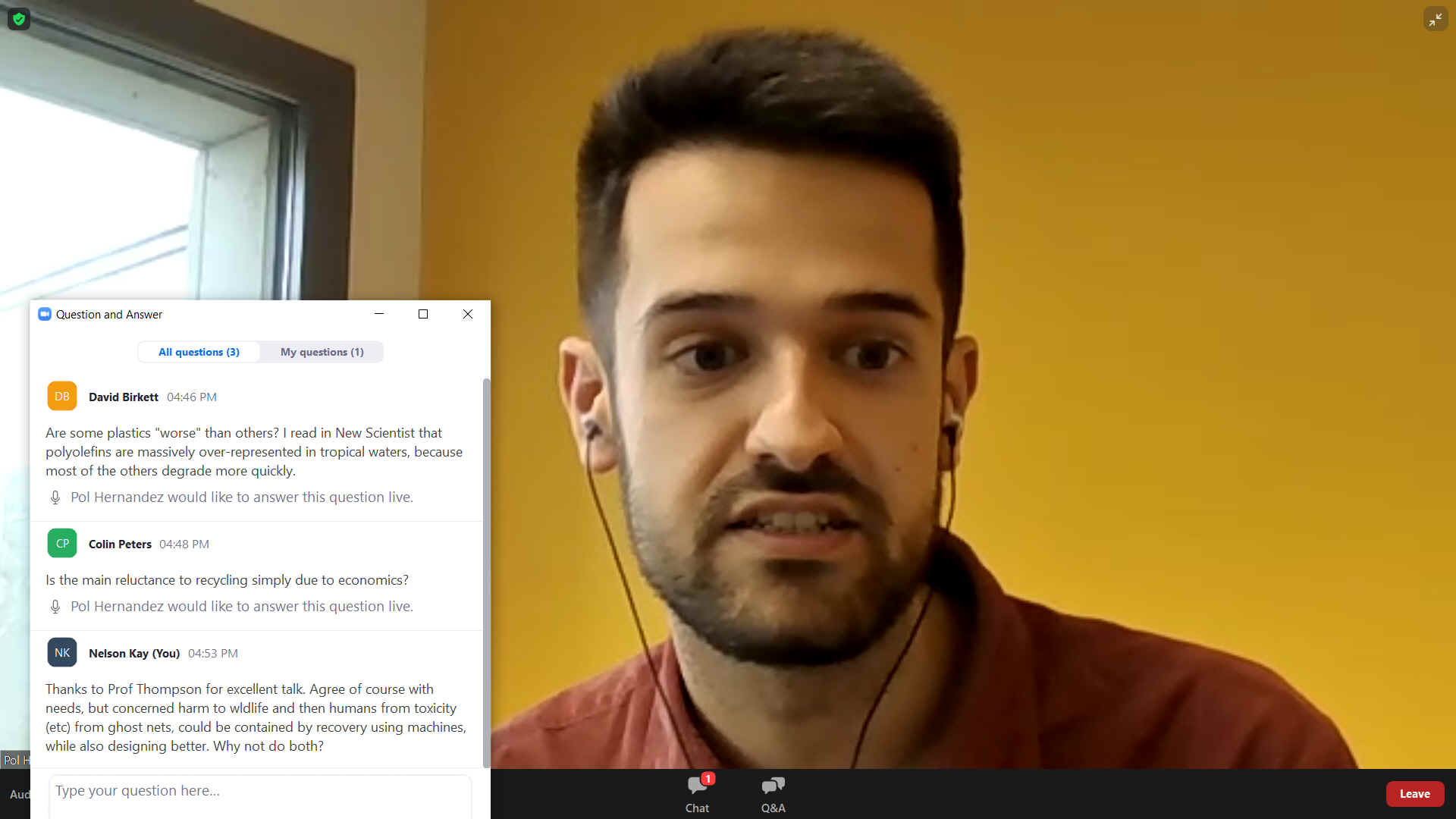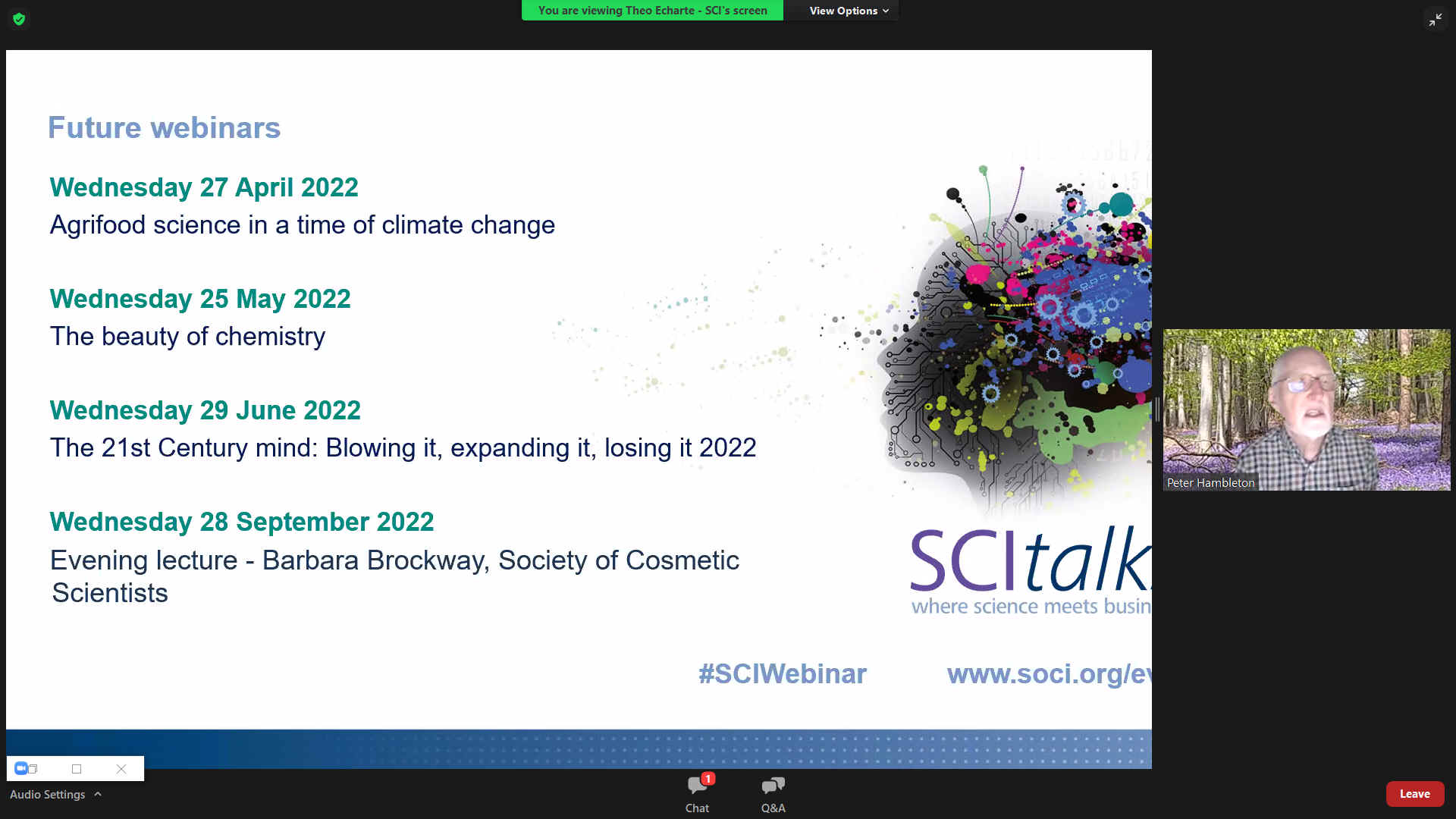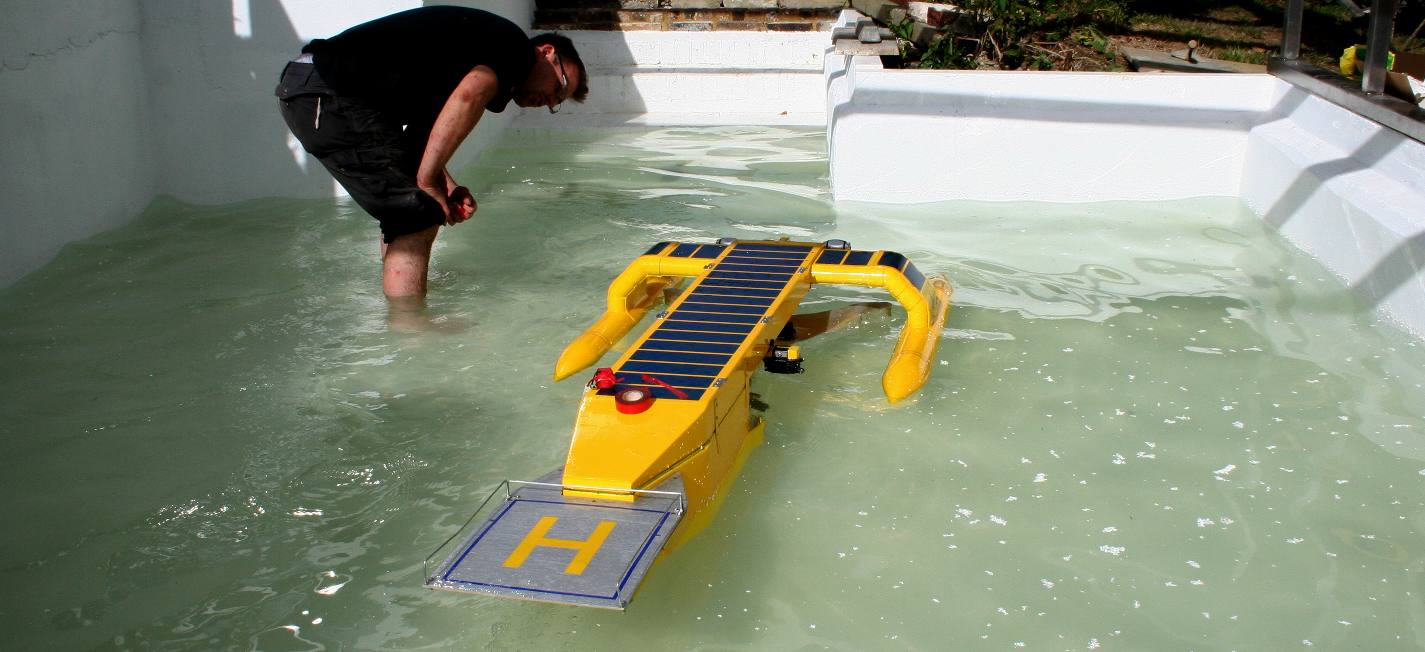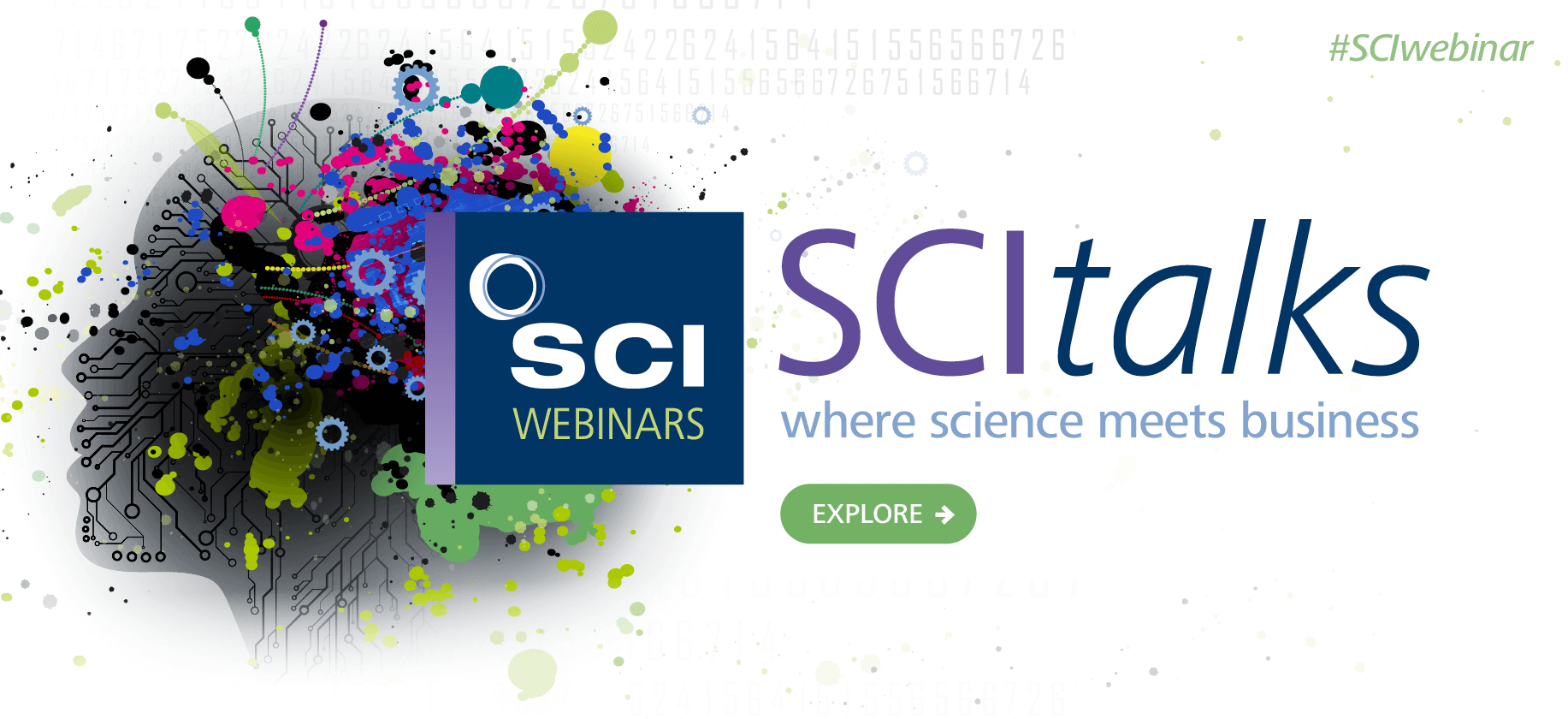|
SCI - MARINE LITTER SOLUTIONS 2022
PLEASE USE OUR A-Z TO NAVIGATE THIS SITE, OR RETURN HOME
|
|
|
|
23 March 2022
Organised by: SCI
This was a most interesting talk by Professor Richard Thompson OBE. He presented much useful information, that confirmed plastics escaping into the environment are causing significant harm to the economy as well as to wildlife, and then humans. No mention was made as to carcinogenic pollutants ingested by marine life in the limited time available. Or, the follow on consequences in terms of NHS costs from treating cancer patients.
It was proposed, that by having the means to clean up the oceans, that we will become used to that and lean on it, rather than deal with the problem at the design stage. It was also said that plastic is not the enemy, but it could be argued that without plastic products and packaging, we'd not have the pollution that it has caused. Hence, plastic is the issue - and without 100% recycling it must be seen as harmful - thus it is the enemy. Until of course we have the solutions.
Pure research never cured anything. It's like knowing you have a dirty floor, but not having a broom or vacuum to clean it up. Assimilating data is needed to know the scale of the problem and the issues that plastics raise - if we continue to use them. But, we also need the brooms to clean up our mess. The fear is that without the tools for the job, by the time scientists have analyzed the problem, it will be too late to act. Unfortunately, this needs some pre-guessing on the part of engineers. But that is not too difficult. When we see a cup on the edge of a table, it is a no-brainer to move it to a safer position. An academic will argue that we should not move the cup, until we have analysed all possible scenarios as to the prospect of it being accidentally knocked to the floor. We say Murphy's Law applies. If something can happen, it probably will happen. If it is a possibility, what harm can there be on moving the cup to a safer location, to reduce that chance of it falling and smashing.
Efforts to recycle single use plastic is the frontline of the resistance. But it is a drop in the ocean compared to the increasing level of plastics being dumped in our oceans. Research and policy evolution is trailing far behind, leading to a situation predicted by the Ellen MacArthur Foundation, that we will have more plastic than fish in the ocean by 2050. We can see nothing to prevent that from happening at the moment.
Comfort is the enemy of progress. Politicians are comfortable with dumping plastic in the oceans, because voters cannot see it. It is argued that plastic has many advantages, about which it cannot be denied, but keeping food fresher can be achieved by using biodegradable/compostable films. Why then not use them? The problem is forcing change. We need policies to force change. And that brings us back to politicians. Politicians who are comfortable with tucking the dirt under the carpet.
With SeaVax out of the running, and the Ocean Cleanup Boom, proving to be not quite as effective as hoped, we need something to keep the build up of ocean waste at bay, while the boffins come up with longer term solutions. The Cleaner Ocean Foundation is now concentrating on ocean literacy with the proposed InnerSpace series of discovery documentaries - stemming from the Jules Verne Hydrogen Challenge or JVH2.
Without doubt, we need a multi-pronged assault on the plastic problem. Proponents should be careful not to shout down problem solvers in fighting their corner. Just because you are smart, does not mean you are going to come up with all the answers. We need the collective brain to deal with challenges of this magnitude. Politicians looking to evade responsibility will latch onto any reason not to do the right thing. Especially, if their lack of vision has been part of the problem. Or worse, they have been backing the wrong horse all along. Like local authorities investing in fossil fuel companies, to safeguard their pensions. It's true, that is what most councils did. Fueling climate change. Now try to get them to admit it might have been a mistake!
Some patents, are fast tracked, where they may benefit the environment. Climate is the main topic of conversation at the moment. Air pollution, not ocean. What we need is zero cost patents, to encourage intellectual entrepreneurs to come up with solutions. They are the champions of technology change. Thank heavens they banned micro-beads. But why did they not penalize those inventors and licensees for the harm they caused. Why is there no plastic tax? When BP spilled oil from Deepwater Horizon, they were fined massive sums. Why are the oil companies not being fined for the ongoing plastic spills?
Academics will never drive dustcarts or plan out routes for collections of waste, build incinerators, or argue for planning permission. They will tell you what the waste consists of and how much there is. Generally, academics do not design commercial machines or generate policies, except with steerage. Policies are driven by economic considerations. This is the background against which mounds of toxic marine litter is accumulating. It is a wonder that there is any funding at all, save for spin that can allow plastic kleptocrats to carry on - business as usual.
The Ocean Commissioners were supposed to be independent, saying there was no solution. That was poor advice, not taking into account that humans are resourceful and nearly always come up with solutions in times of war. The victors are the ones with the weapons to win. There can be no unintended consequences to a chap with a broom cleaning his patch. There can be unforeseen consequences in failing to act with due diligence, or replacing one problem plastic with another. As Professor Thompson said, we are shedding plastic fibres from our clothes as we walk about. Filters on washing machines is a partial and necessary evolutionary stage of development. But, what about banning polymers in clothing? Why not go back to cotton, wool and silk. This is worse case scenario. Clothing fibres are one of the most difficult to deal with. Machines can harvest ghost fishing gear. But micro particles are much harder to eradicate.
Funding is almost totally lacking when it comes to action. Funding also needs to be stepped up for the above research, where knowledge will add to the argument for action. But funding for interim solutions like SeaVax, could have seen those in operation by now. Sadly, the G20 refused to take action, all diving for cover amid a mist of obfuscation and suppositions, without stopping to think that with a prototype they could evaluate the usefulness or otherwise of such machinery. Without a prototype, they are operating in the dark. It is a similar argument, as with the case for more research funding.
We use dustcarts to collect refuse from our streets. Imagine our towns and cities without them. But we have nothing to routinely scour the oceans of either micro/macro plastics (which is very retrospective) or ghost fishing nets. We need ocean going dustcarts to keep the oceans alive. Like our cities, which would be hopelessly contaminated health risks if we did not deal with rubbish. Untreated, the oceans are a cesspit of contamination - and it is getting worse.
It should be that the polluter pays. Where policy makers are effectively fighting the corner for the plastics industry, as a sort of conflict of interests, such as donations to political parties, what hope is there for marine mammals who cannot contribute to party funds. We need more transparency and literacy campaigns, to make the invisible issues, visible. Including, who is contributing to who. The current war between Russian and the Ukraine could have been forestalled if money laundering was tackled when David Cameron mentioned it as the UK's prime minister. Retrospective freezing of assets is working, demonstrating that prevention is better than cure.
Q&Q Nelson Kay - Thanks to Prof. Thompson for sn excellent talk. The Foundation agree of course with needs as to continued research efforts and effects on the environment, but concerned harm to wildlife and then humans from toxicity (etc) from ghost nets, could be contained by recovery using machines, while also designing better. Why not do both? Continue with environmental research, while also monitoring and cleaning up rivers and oceans at a practical level. If you have an oil spill it is necessary to deploy machines to suck up as much of the pollutant as you can to contain the environmental damage. At the moment we have an unconstrained plastic spill, but no means to contain it, while we talk about ways of turning off the tap.
SPEAKER - PROFESSOR RICHARD THOMPSON
OBE
The SeaVax project (above) proved that it was possible to filter plastic from the oceans using a solar powered machine to target micro and macro plastic. It was unfortunate that Brexit shrouded EU Horizon 2020 applications in political mist, as much as what many have said was a perverse decision on the part of the Charity Commission, not to classify the project as a charitable enterprise. Without funding of any sort, the project stalled at the 1:20 scale stage, not going on to full or even half size prototypes. And was eventually cancelled in 2020. But even so, in late 2021, volunteers completed tests of the beach launching system - convincingly demonstrating that element of the project - with successful (proof of concept) trials, that should be published in 2022 or 2023 as time allows. The project was thus a success in scientific terms, if not implemented practically. Please note that development and operations of such machines is a loss maker, with no customer to be able to recover costs. As such, no business model is possible. A business, by definition being a profitable concern.
Most importantly, this is the only machine capable of dealing with ghost fishing net recovery and partial treatment onboard. Much of the plastic in the oceans is discarded fishing gear and plastic ropes. This statistic is largely ignored - especially by politicians focusing on fish catches to underpin their economies.
Cleaner
Ocean Foundation advocate a multi pronged attack on plastic, by reduction of
disposable packaging and re-design, or outright ban on some items that
cannot be effectively recycled. This is in addition to seeking replacements,
by way of biodegradable and compostable plastics, etc.
The general consensus is that seafood is becoming more toxic as fauna soak up carcinogens, from ingesting plastics, potentially raising cancer rates in humans and overburdening our health services.
Eventually, it is thought that whaling may have to be re-instated to make up for lost fish protein. A sad situation if it ever comes to that.
CONTACTS
SCI Conference Team
T: +44(0) 207 598 1561
SCI, 14/15 Belgrave Square London, SW1X 8PS, UK. Registered as UK Charity 206883. T: +44 (0)207 598 1500,
|
|
|
LINKS & REFERENCE
https://www.
|
|
|
|
|
|
PLEASE USE OUR A-Z TO NAVIGATE THIS SITE
This website is provided on a free basis as a public information service. copyright © Cleaner Oceans Foundation Ltd (COFL) (Company No: 4674774) 2022. Solar Studios, BN271RF, United Kingdom. COFL is a company without share capital whose founding objects are charitable, being not-for-profit.
|
